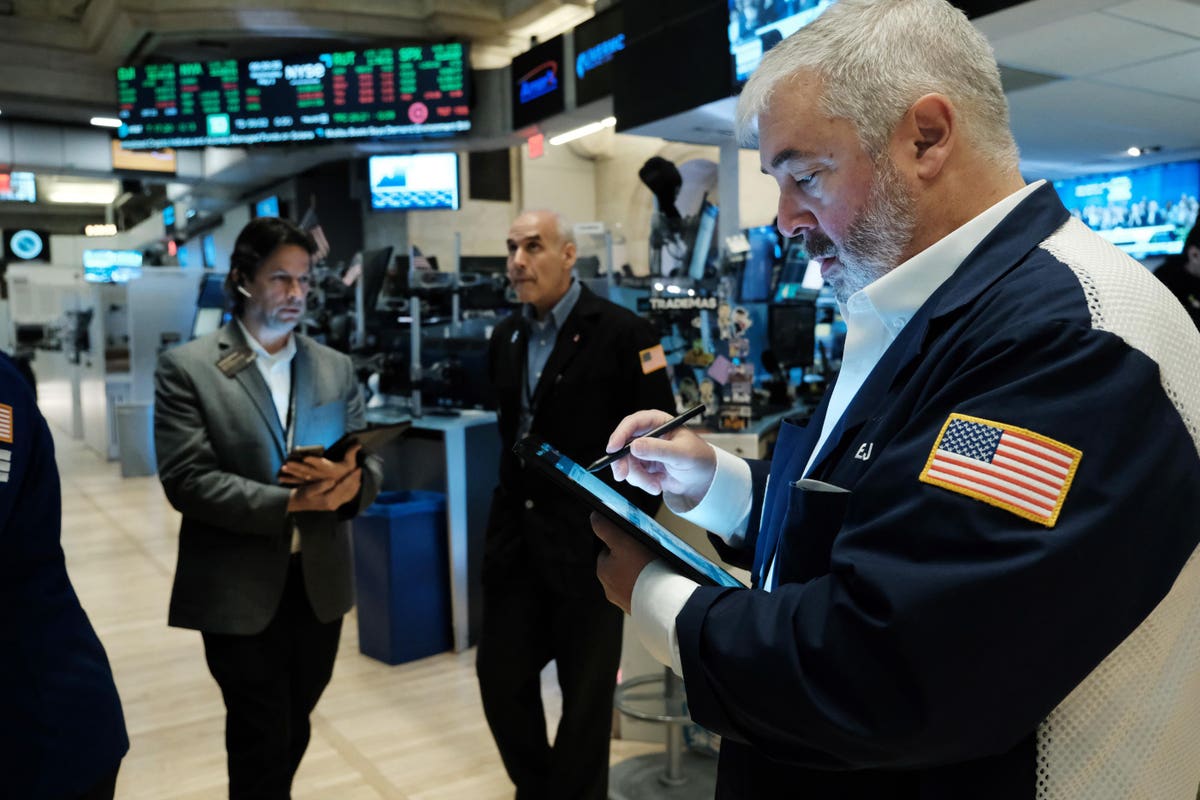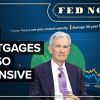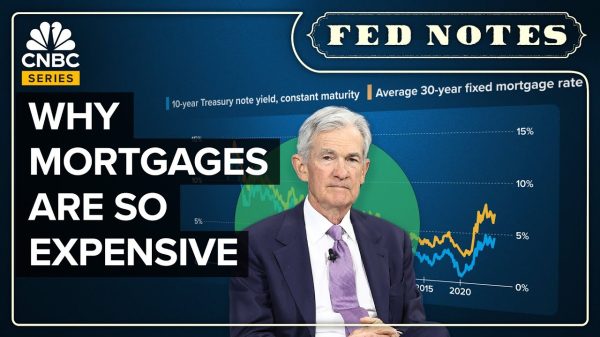TL;DR
- A pretty big week for economic data, as GDP slowed again, consumer confidence slumped but housing prices unexpectedly increased
- Earnings season got off to a good start, with many big banks and tech companies posting positive Q1 results
- Even so, a recession is looking more likely all the time, and we’ve launched the Recession Resistance Kit to help you fight against it
- Top weekly and monthly trades
Subscribe to the Forbes AI newsletter to stay in the loop and get our AI-backed investing insights, latest news and more delivered directly to your inbox every weekend. And download Q.ai today for access to AI-powered investment strategies.
Major events that could affect your portfolio
There were a number of key pieces of economic data released this week, which the Fed will be keeping a close eye on as they head into the next FOMC meeting next Tuesday.
The U.S. Housing Price Index made an unexpected jump in February, with the average house price gaining 0.5% during the month. This was a pretty sizable departure from the consensus projections, which expected to see a fall of 0.2%.
Another real estate data set, the S&P CoreLogic Case-Shiller index confirmed the trend, increasing for the first time in seven months with a gain of 0.2%.
But this was the only component of this week’s economic data that showed positive signs, with both GDP and consumer confidence both continuing a downward trend.
Consumer confidence fell to a nine month low in April, hitting 101.3 from 104.0 in March. This was worse than analysts’ predictions, which had suggested the figure would hold steady at 104.
GDP was the other big one this week, with the economy growing at an annualized rate of 1.1% in Q1. That’s below the expectation of 1.9% and significantly below last quarter’s rate of 2.6%.
Other than the unusual jump in property prices, which is likely to be short lived, the economic data is all trending downwards. That’s a positive for the Fed as it suggests inflation could follow, but a potential recession is something that investors will need to look out for closely.
—
Against that backdrop, it’s not actually been a bad start to the Q1 earnings season. This week saw a number of big name companies announce their financial results from the first three months of the year, and there have been some surprising numbers.
To start with, the big banks got the year off to a flying start, with very strong results for those banks with big retail businesses. Some had been concerned that we may see further evidence of cracks in the financial sector after the collapse of Silicon Valley Bank. While we did see some of that in regional banks (more on that in a second), the majors were apparently unaffected.
JPMorgan led the way with a 52% uplift in earnings, while Citigroup also increased its profit to $4.6 billion. Bank of America followed suit with a 15% bump in profits, and Wells Fargo grew net income by 30%.
Big banks like Goldman Sachs and Morgan Stanley make a large proportion of their income from mergers and acquisitions, and they’ve been feeling the heat as this activity has dropped off a cliff.
Likewise, regional banks suffered, particularly First Republic Bank which announced a 40% drop in earnings and details of $100m in short term loans from the Fed.
In tech, Microsoft, Meta and Google posted strong results, with their stock prices bouncing 9%, 12% and 3% respectively after the announcements. On the flipside, Tesla stock sank 18% off the bank of a lackluster earnings call.
This week’s top theme from Q.ai
All signs (well, most signs) are pointing to a recession right now. Apart from the odd anomaly here and there, economic data is pointed firmly in that direction. The likelihood of further rate increases from the Fed is still high, which will continue to prod the economy in that direction.
For investors, it’s a difficult spot to be in. While we didn’t officially enter a recession last year, we saw how volatile markets can be during periods of economic turmoil.
So what can you do? One of the most common knee jerk reactions is to move assets to cash. It seems like a safe thing to do, because the nominal value of cash doesn’t change. But there are a number of problems with that.
Firstly, inflation is still high, meaning the purchasing power (or real value) of your cash is guaranteed to go down each year. If inflation is 6% and your bank account interest is 3%, it means you’re losing 3% in real terms.
Second, when do you decide the best time to get back in? Missing just a few big days in markets can mean a massive difference in your long term returns. Timing the market perfectly to move back in is almost impossible, even for professional investors with big teams and budgets.
The better option is to invest in assets that tend to perform better than most during a recession. This is why we’ve just launched the Recession Resistance Kit, which does exactly that. Using the power of AI, it invests in recession resistant sectors like health care and utilities, to help you access gains, regardless of economic conditions.
Top trade ideas
Here are some of the best ideas our AI systems are recommending for the next week and month.
Advantage Solutions (ADV) – The marketing and sales company is one of our Top Buys for next week with an A rating in our Quality Value, Technicals and Growth factors. Revenue grew 12.4% in 2022.
Great Ajax (AJX) – The real estate investment trust is our Top Short for next week with our AI rating them a D in Quality Value. Revenue was down 53.98% in 2022.
Hancock Whitney (HWC) – The bank is a Top Buy for next month with a B rating in Quality Value, Low Momentum Volatility and Growth. Earnings per share was up 11.5% in Q1.
Appelis Pharmaceuticals (APLS) – The pharmaceutical company is our Top Short for next month with our AI rating them an F in Quality Value. Earnings per share was -$6.15 in 2022.
Our AI’s Top ETF trades for the next month are to invest in regional banks, natural gas and the VIX, and to short US value stocks. Top Buys are the SPDR S&P Regional Banking ETF, the United States Natural Gas Fund and the ProShares VIX Short-Term Futures ETF and the Top Shorts are the iShares Core S&P Small-Cap ETF and the iShares Russell 2000 Value ETF.
Recently published Qbits
Want to learn more about investing or sharpen your existing knowledge? Qai publishes Qbits on our Learn Center, where you can define investing terms, unpack financial concepts and up your skill level.
Qbits are digestible, snackable investing content intended to break down complex concepts in plain English.
Download Q.ai today for access to AI-powered investment strategies.
Read the full article here













